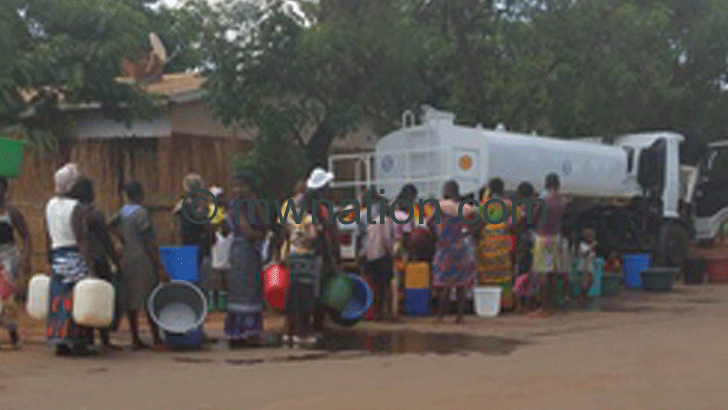CSR lobbies MPs on water rights
Some organisations on Thursday dated members of the Parliamentary committee on Agriculture and the Environment to push for more funding in the water sector in this year’s budget.
Presenting the 2016-2017 National Budget on Friday, Minister of Finance, Economic Planning and Development Goodall Gondwe indicated a K198 billion allocation to the agriculture and water development sectors, with K6 billion for irrigation. There is no emphasis in the budget on what has been allocated for the water sector.

Yet, during a working dinner with the parliamentarians at Capital Hotel in Lilongwe a night before the budget was presented on Friday, Centre for Social Research (CSR) and the Tearfund lobbied parliamentarians to push for more funding for the water sector, saying that the sector not only drives the Malawi economic pusher—agriculture—but other sectors as well.
CSR deputy director Blessings Chinsinga, comparing the right to water to the right to life, said funding to the water sector has been a constraint to reach out to more Malawians. He observed that although 84 percent of Malawians are said to be covered in access to water, less than 50 percent access clean, safe and quality water.
“On paper, more Malawians can be seen to be covered, yet on the ground very few of them have access to the vital resources as most of the sources are dilapidated. Water is important for the agriculture, education, health, transport, gender and virtually every sector of the Malawi society but support to the sector is negligible. That is evident with the paltry funding to the sector and also since we have not made water a right that could invite more funding to its development,” said Chinsinga.
Committee chairperson, Felix Jumbe, said more funding to the water sector is vital, not only for agriculture purposes.
“It is time the water boards moved from concentrating only on providing piped water to major centres, but also boreholes to the remotest areas where water problems are rife. Besides, we need a pay-for-use approach where those who cannot afford to pay can be cushioned by those who can pay and pay even more,” said Jumbe.
On his part, Parliamentary Committee Natural Resources and Climate Change vice-chairperson Alex Major believes it is high time research from the academia was taken seriously as depletion of water resources is leading to declines in agricultural production due to effects of climate change.





